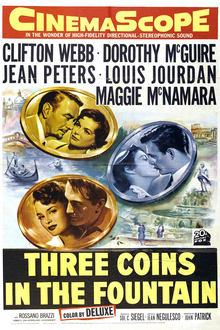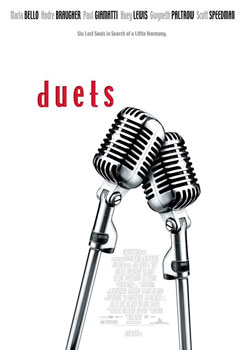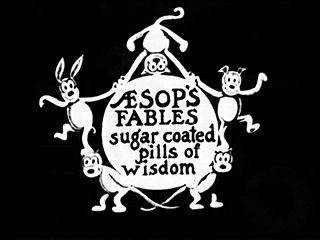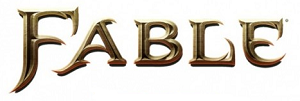Related Research Articles

Three Coins in the Fountain is a 1954 American romantic comedy-drama film directed by Jean Negulesco from a screenplay by John Patrick, based on the 1952 novel Coins in the Fountain by John H. Secondari. It stars Clifton Webb, Dorothy McGuire, Jean Peters, Louis Jourdan, and Maggie McNamara, with Rossano Brazzi, Howard St. John, Kathryn Givney, and Cathleen Nesbitt. The film follows three American women working in Rome who dream of finding romance in the Eternal City. It was originally titled We Believe in Love.

Aesop's Fables, or the Aesopica, is a collection of fables credited to Aesop, a slave and storyteller who lived in ancient Greece between 620 and 564 BCE. Of diverse origins, the stories associated with his name have descended to modern times through a number of sources and continue to be reinterpreted in different verbal registers and in popular as well as artistic media.

George Ade was an American writer, syndicated newspaper columnist, and playwright who gained national notoriety at the turn of the 20th century with his "Stories of the Streets and of the Town", a column that used street language and slang to describe daily life in Chicago, and a column of his fables in slang, which were humorous stories that featured vernacular speech and the liberal use of capitalization in his characters' dialog.

Chicken Little is a 2005 American animated science fiction comedy film produced by Walt Disney Feature Animation and distributed by Buena Vista Pictures Distribution. It was directed by Mark Dindal from a screenplay by Steve Bencich, Ron J. Friedman, and Ron Anderson, based on a story by Dinal and Mark Kennedy, loosely inspired on the European folk tale "Henny Penny", known in the United States as "Chicken Little". In this version, the title character is ridiculed by his town for causing a panic, thinking that the sky was "falling". A year later he attempts to fix his reputation, followed by an unexpected truth regarding his past being revealed. The film is dedicated to Disney artist and writer Joe Grant, who died before the film's release. This also marked the final film appearance of Don Knotts during his lifetime, as his next and final film, Air Buddies, would be released posthumously.

Duets is a 2000 American road trip film co-produced and directed by Bruce Paltrow and written by John Byrum. The motion picture features an ensemble cast with Gwyneth Paltrow, Huey Lewis, Paul Giamatti, Maria Bello, Angie Dickinson, Scott Speedman, and Andre Braugher among others. The movie "revolves around the little known world of karaoke competitions and the wayward characters who inhabit it."

The Ant and the Grasshopper, alternatively titled The Grasshopper and the Ant, is one of Aesop's Fables, numbered 373 in the Perry Index. The fable describes how a hungry grasshopper begs for food from an ant when winter comes and is refused. The situation sums up moral lessons about the virtues of hard work and planning for the future.
The North Wind and the Sun is one of Aesop's Fables. It is type 298 in the Aarne–Thompson folktale classification. The moral it teaches about the superiority of persuasion over force has made the story widely known. It has also become a chosen text for phonetic transcriptions.
The lion's share is an idiomatic expression which now refers to the major share of something. The phrase derives from the plot of a number of fables ascribed to Aesop and is used here as their generic title. There are two main types of story, which exist in several different versions. Other fables exist in the East that feature division of prey in such a way that the divider gains the greater part - or even the whole. In English the phrase used in the sense of nearly all only appeared at the end of the 18th century; the French equivalent, le partage du lion, is recorded from the start of that century, following La Fontaine's version of the fable.

Aesop's Fables is a series of animated short subjects, created by American cartoonist Paul Terry. Produced from 1921 to 1933, the series includes Closer than a Brother (1925), The Window Washers (1925), Small Town Sheriff (1927), Dinner Time (1928), and Gypped in Egypt (1930). Dinner Time is the first cartoon with a synchronized soundtrack ever released to the public. The series provided inspiration to Walt Disney to found the Laugh-O-Gram Studio in Kansas City, Missouri, where he created Mickey Mouse.

The Milagro Beanfield War is a 1988 American comedy-drama film directed by Robert Redford from a screenplay written by John Nichols and David S. Ward based on Nichols's novel of the same name. The ensemble cast includes Ruben Blades, Richard Bradford, Sônia Braga, Julie Carmen, James Gammon, Melanie Griffith, John Heard, Carlos Riquelme, Daniel Stern, Chick Vennera, and Christopher Walken.

A Man of Means is a collection of six short stories written in collaboration by P. G. Wodehouse and C. H. Bovill. The stories first appeared in the United Kingdom in The Strand Magazine in 1914, and in the United States in Pictorial Review in 1916. They were later published in book form in the UK by Porpoise Books in 1991. The collection was released on Project Gutenberg in 2003.

"The Town Mouse and the Country Mouse" is one of Aesop's Fables. It is number 352 in the Perry Index and type 112 in Aarne–Thompson's folk tale index. Like several other elements in Aesop's fables, 'town mouse and country mouse' has become an English idiom.

Fable II is a 2008 action role-playing open world video game, developed by Lionhead Studios and published by Microsoft Game Studios for Xbox 360. The game is the second installment in the Fable game series, and the sequel to 2004's Fable. The story takes place within the fictional land of Albion, 500 years after the first game. Players assume the role of a young hero who is destined to stop a former ruler turned madman from destroying the world. The game features several prominent actors portraying major characters in the game, including Zoë Wanamaker, Ron Glass and Stephen Fry. The game's setting takes inspiration from the historical late colonial era, in terms of architecture, social quality and basic firearms such as flintlock pistols.

99 Fables is a book of fables by American author William March. The collection was first written around 1938 but was never published as a whole. More than 40 had been published in journals and magazines such as Prairie Schooner, Kansas Magazine, Rocky Mountain Review, and New York Post. Not long before his death in 1954, March returned to the collection and edited it, leaving 99 fables in all. March's manuscripts of the fables were further edited in 1959 by William T. Going, and published in 1960 by the University of Alabama Press, with illustrations by Richard Brough. The cover won an award at the 1960 Southern Books Competition.

Maria's Lovers is a 1984 American drama film directed by Andrei Konchalovsky and starring Nastassja Kinski, John Savage, and Robert Mitchum. The plot follows a soldier returning from World War II who marries the woman of his dreams, but he is unable to consummate his marriage, ruining the couple's chances of a shared happiness. The film is the first American feature film by Konchalovsky and opened the 41st Venice International Film Festival. Maria's Lovers also was nominated César Award for Best Foreign Film.
In Greek mythology, the figure of Horkos personifies the curse that will be inflicted on any person who swears a false oath. He was the avenger of perjury and the punitive companion of the goddess Dike (Justice).

Fable is a series of action role-playing video games for Xbox, Microsoft Windows, macOS, Xbox 360 and Xbox One platforms. The series was developed by Lionhead Studios until the studio was closed in 2016, and is published by Xbox Game Studios.
The Ass and the Pig is one of Aesop's Fables that was never adopted in the West but has Eastern variants that remain popular. Their general teaching is that the easy life and seeming good fortune of others conceal a threat to their welfare.
The Old Man and Death is one of Aesop's Fables and is numbered 60 in the Perry Index. Because this was one of the comparatively rare fables featuring humans, it was the subject of many paintings, especially in France, where Jean de la Fontaine's adaptation had made it popular.

The Weasel and Aphrodite, also known as Venus and the Cat is one of Aesop's Fables, numbered 50 in the Perry Index. A fable on the cynic theme of the constancy of one's nature, it serves as a cautionary tale against trusting those with evil temper, for even if they might change their body, they will not change their mind.
References
- ↑ J.L.L. Kuhn (1918). List of Films, Reels and Views Examined. Pennsylvania, USA: State Board of Censors of Moving Pictures.